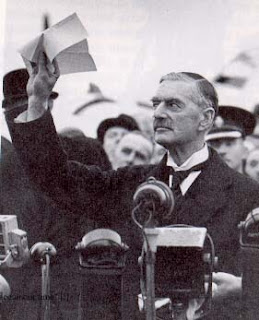
Posted on 10/14/2010 6:22:15 PM PDT by jazusamo
A tug of war over defense spending this week harbingers budget conflicts to come as the irresistible force of rising military costs meets the immovable object of growing fiscal deficits.
On the one hand, a group of mostly Democratic lawmakers is urging the president's commission on reducing the national debt to consider wide-ranging cuts to the defense budget as a way to eliminate the deficit by 2015 — the commission's goal. For this group, such cuts are at the heart of a strategic effort to scale back America's global role and husband the nation's limited resources at a time of economic uncertainty.
"I've been for some time a critic of America's excessive military engagement with the rest of the world," Rep. Barney Frank, Massachusetts Democrat, told reporters.
Mr. Frank and 56 other lawmakers, including Rep. Ron Paul, Texas Republican, wrote this week to the National Commission on Fiscal Responsibility and Reform — the blue-ribbon panel charged with recommending ways to eliminate the gap between the federal government's spending and income by 2015.
"Instead of protecting us against a clear and determined foe and enemy," the letter says, "Defense Department planning and strategic objectives now focus on stemming the emergence of new threats by maintaining a vast range of global commitments … We believe that such commitments need to be scaled back."
One the other hand, three conservative think tanks unveiled a report this month arguing that a strong military that could keep peace throughout the world is the essential foundation of American prosperity.
"Strength, not weakness, brings the true peace dividend in a global economy," wrote Arthur C. Brooks, president of the American Enterprise Institute; Edwin J. Feulner, president of the Heritage Foundation; and William Kristol, a director of the Foreign Policy Initiative.
"Faced with a nuclear Iran,..
(Excerpt) Read more at washingtontimes.com ...

But part of that, I would say, involves a willingness to attack any target at all. We firebombed Toyko in 1945. Many women and children died. If we are unwilling to do that to a city like Tehran, then we have to really rethink what we think our military is for -- perhaps the nation is more comfortable with the nation-building role, and less comfortable with the "breaking things" role.
Too bad he’s not still around to clue some of his fellow pacifists in on his stupidity.
I believe we have to have a trained and adequate military and be willing to attack any target to remain free, that would save many lives in the long, IMO.
long = long run
Well, I don't know what he said on the subject after he was replaced by Churchill, but if he's like most of his ilk, he would swear that he did the right thing, that the Munich Agreement would have averted war but for a whole list of excuses that he'd be glad to bend your ear off about until you dropped dead of boredom.
Yeah, I believe it’s worded something like to provide for the common defense and general welfare but the majority of our legislators over the years have come to consider the welfare part more important.
But there is a middle ground, Neville Chamberlain is one extreme, but on the other hand their is the example of France, once the mightiest nation in Europe. But generations of such military adventurers as Louis XIV and Napoleon sapped the blood and treasure of the nation until the desiccated nation was unequal to the supreme test in 1940. Preserving necessary military strength also includes the long-term preservation of it by not overusing and overextending it.
No doubt you're correct and many on the Hill now have followed his example.
You make a valid point. Over the centuries the defense of a nation has changed, the world is a much smaller place. More countries have the means to supply their military’s with the necessities and that’s even more reason to maintain an adequate military and fall into the state we fell into in the 1930’s while at the same time not over extending.
I believe you’re correct but I also believe too many politicians don’t interpret it that way and you’re absolutely right that the original Constitution’s intent has been skewed.
so true, and therein is our problem(s).
Disclaimer: Opinions posted on Free Republic are those of the individual posters and do not necessarily represent the opinion of Free Republic or its management. All materials posted herein are protected by copyright law and the exemption for fair use of copyrighted works.